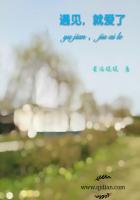Dear Sir,Before your letter arrived, and of my own accord, I had been remarking and comparing the tails of the male and female swallow, and this ere any young broods appeared; so that there was no danger of confounding the dams with their pulli: and besides, as they were then always in pairs, and busied in the employ of nidification, there could be no room for mistaking the ***es, nor the individuals of different chimnies the one for the other. From all my observations, it constantly appeared that each *** has the long feathers in its tail that give it that forked shape; with this difference, that they are longer in the tail of the male than in that of the female.
Nightingales, when their young first come abroad, and are helpless, make a plaintive and a jarring noise: and also a snapping or cracking, pursuing people along the hedges as they walk: these last sounds seem intended for menace and defiance.
The grasshopper-lark chirps all night in the height of summer.
Swans turn white the second year, and breed the third.
Weasels prey on moles, as appears by their being sometimes caught in mole-traps.
Sparrow-hawks sometimes breed in old crows' nests, and the kestrel in churches and ruins.
There are supposed to be two sorts of eels in the island of Ely. The threads sometimes discovered in eels are perhaps their young: the generation of eels is very dark and mysterious.
Hen-harriers breed on the ground, and seem never to settle on trees.
When red-starts shake their tails they move them horizontally, as dogs do when they fawn: the tail of a wagtail, when in motion, bobs up and down like that of a jaded horse.
Hedge-sparrows have a remarkable flirt with their wings in breeding-time; as soon as frosty mornings come they make a very piping plaintive noise.
Many birds which become silent about Midsummer reassume their notes again in September; as the thrush, blackbird, woodlark, willow-wren, etc.; hence August is by much the most mute month, the spring, summer, and autumn through. Are birds induced to sing again because the temperament of autumn resembles that of spring ?
Linnaeus ranges plants geographically; palms inhabit the tropics, grasses the temperate zones, and mosses and lichens the polar circles; no doubt animals may be classed in the same manner with propriety.
House-sparrows build under eaves in the spring; as the weather becomes hotter they get out for coolness, and nest in plum-trees and apple-trees. These birds have been known sometimes to build in rooks' nests, and sometimes in the forks of boughs under rooks'
nests.
As my neighbour was housing a rick he observed that his dogs devoured all the little red mice that they could catch, but rejected the common mice: and that his cats ate the common mice, refusing the red.
Red-breasts sing all through the spring, summer, and autumn. The reason that they are called autumn songsters is, because in the two first seasons their voices are drowned and lost in the general chorus; in the latter their song becomes distinguishable. Many songsters of the autumn seem to be the young cock red-breasts of that year: notwithstanding the prejudices in their favour, they do much mischief in gardens to the summer-fruits.*(* They eat also the berries of the ivy, the honeysuckle, and the euonymus europaeus, or spindle-tree.)The titmouse, which early in February begins to make two quaint notes, like the whetting of a saw, is the marsh titmouse: the great titmouse sings with three cheerful joyous notes, and begins about the same time.
Wrens sing all the winter through, frost excepted.
House-martins came remarkably late this year both in Hampshire and Devonshire: is this circumstance for or against either hiding or migration ?
Most birds drink sipping at intervals; but pigeons take a long continued draught, like quadrupeds.
Notwithstanding what I have said in a former letter, no grey crows were ever known to breed on Dartmoor: it was my mistake.
The appearance and flying of the scarabaeus solstitialis, or fern-chafer, commence with the month of July, and cease about the end of it. These scarabs are the constant food of caprimulgi, or fern-owls, through that period. They abound on the chalky downs and in some sandy districts, but not in the clays.
In the garden of the Black-bear inn in the town of Reading is a stream or canal running under the stables and out into the fields on the other side of the road; in this water are many carps, which lie rolling about in sight, being fed by travellers, who amuse themselves by tossing them bread: but as soon as the weather grows at all severe these fishes are no longer seen, because they retire under the stables, where they remain till the return of spring.
Do they lie in a torpid state? if they do not, how are they supported?
The note of the white-throat, which is continually repeated, and often attended with odd gesticulations on the wing, is harsh and displeasing. These birds seem of a pugnacious disposition; for they sing with an erected crest and attitudes of rivalry and defiance; are shy and wild in breeding-time, avoiding neighbourhoods, and haunting lonely lanes and commons; nay even the very tops of the Sussex-downs, where there are bushes and covert; but in July and August they bring their broods into gardens and orchards, and make great havoc among the summer-fruits.
The black-cap has in common a full, sweet, deep, loud and wild pipe; yet that strain is of short continuance, and his motions are desultory; but when that bird sits calmly and engages in song in earnest, he pours forth very sweet, but inward melody, and expresses great variety of soft and gentle modulations, superior perhaps to those of any of our warblers, the nightingale excepted.
Black-caps mostly haunt orchards and gardens; while they warble their throats are wonderfully distended.
The song of the red-start is superior, though somewhat like that of the white-throat: some birds have a few more notes than others.














